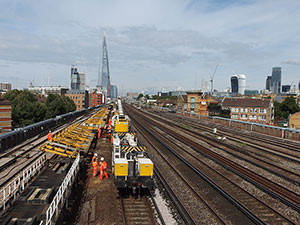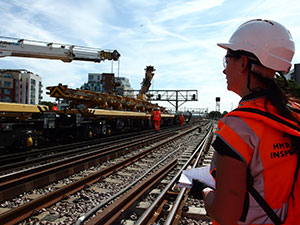Content archived on 23 November 2024
As Lord Tony Berkeley commented recently in the House of Lords, we've come quite a long way:
…There were some horrendous accidents on the railways in Victorian times, starting off with a Member of Parliament who got crushed by one of the first trains because he was standing too close to it, or something. That led to the introduction of the Railway Inspectorate, whose job it was to ensure that the railways were safe, bringing in things such as brakes, which are quite useful. Things have moved on a bit since then. The Railway Inspectorate was originally staffed by retired Army officers, but more recently it has moved to the Office of Rail Regulation, which is the right place for it. I think that it does a very good job.
Britain has a good recent safety record, currently one of the best in Europe. We're a long way from the dangers you faced in Victorian times, or even 10 years ago, but that doesn't mean we take this for granted. We're here to ensure that improvements in health and safety continue right across the network, so we improve safety for passengers, the public using level crossings and for the thousands of staff who work on our railways every day.
You might never have noticed our inspectors. Like everyone following good safety practice on the railway we're dressed in orange high visibility outfits. But we will be there at places like London Bridge Station throughout its current major refit. For example, this last bank holiday weekend – when hopefully most people were enjoying a break – around 200 Network Rail track workers and specialist contractors were dodging the Monday downpours to get on with the upgrade to increase train capacity into the station.
Our inspectors were there as well to make sure all these people were working in a way that was safe and put no-one's health at risk. We were checking a range of things like whether they had good rest facilities set up for track workers, simple things like the way they went about lifting things, and that they had the right systems in place to avoid serious health hazards such as breathing in the stone dust from the ballast that goes under the rails.


On this particular visit we were satisfied with the measures that had been put in place, but unfortunately that isn't always the case. ORR's role is to enforce health and safety legislation, so while we will work with industry to encourage safe ways of working we also intervene when this doesn't happen. Where there are breaches of health and safety legislation, our inspectors have the powers to issue enforcement notices requiring companies to take specific actions to minimise risks.
ORR also has the powers to prosecute companies who break the law. Only this week, Balfour Beatty were fined £350,000 and ordered to pay costs of £50,000 following a tragic incident in 2011 when a rail worker suffered severe electrical burns while installing overhead wires on track near Cricklewood. The company's arrangements fell well short of the standard expected for a company operating in a high risk environment. A lack of planning and poor communication contributed to this incident. It resulted in life changing injuries and could very easily have been fatal.
Fortunately, prosecutions like this are a last resort, but is a sobering reminder to me that we work in a safety critical industry and every day there is more we can do to make Britain's railways as safe as they possibly can be.


